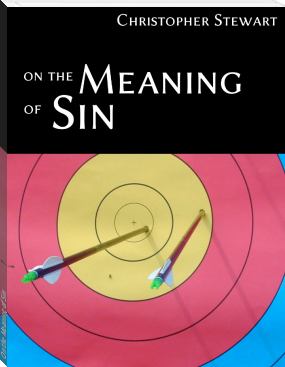author - "Christopher Stewart"

Over the last decade or so, file sharing has become a widespread phenomenon. As much as having the possibility of exchanging information almost instantaneously can represent a blessing in terms of communication and progress, it obviously opens the door to pursuits that enjoy a far less angelic reputation.
Still, the overall picture suggests that a significant number of internet users participate in such ill-famed activities. Considering this state of affairs, could illegal file sharing actually be a positive process for those downloaders, and for the collectivity alike ?
The question is generally approached from the angle of its economic impacts, but there is evidently more to the issue than its pecuniary dimension.
« Takers Economy » proposes an alternative look at illegal file sharing in light of the role of art in society, and in the context of the oneness of all beings and things.
In addition, the inquiry explores the global picture from which the circumstances emerge, and attempts to characterize the underlying culture that gives rise to them.
Finally, the essay introduces a philosophy of endosymbiotism that aims to foster attitudes and behaviours that accord with the ethics of the inherent unseparateness of being.

Growing up is hard work. As we architect our lives, responding to the requirements of our path is demanding enough as it is without having to address additional annoyances that get in the way of our personal development. Still, what if all those irritations were actually the results of our own errors, and as such as many clues inviting us to reform and to regain the itinerary we have selected for ourselves ?
On the Meaning of Sin proposes a different take on the mechanics of sin and rebirth in hell, coming from the perspective of an unorthodox trajectory in the worlds of arts, science, and Oriental philosophy.
In this alternative view, the cosmos provides a course-correction mechanism wherein whenever we miss the mark, we are redirected towards the enjoyment of tranquil progress towards our goals. It supplies a metaphor facilitating the elimination of error, and thus benevolently assists and fosters the achievement of our objectives, allowing us to cultivate a gradually less corrupt mind that gives rise to increasingly satisfying hereafters, in an ever refining continuum.
Any individual can attain liberation, or elimination of error, at any time, and so can society as a whole.
Heaven truly exists, and it is constantly beckoning us towards it.

Over the last decade or so, file sharing has become a widespread phenomenon. As much as having the possibility of exchanging information almost instantaneously can represent a blessing in terms of communication and progress, it obviously opens the door to pursuits that enjoy a far less angelic reputation.
Still, the overall picture suggests that a significant number of internet users participate in such ill-famed activities. Considering this state of affairs, could illegal file sharing actually be a positive process for those downloaders, and for the collectivity alike ?
The question is generally approached from the angle of its economic impacts, but there is evidently more to the issue than its pecuniary dimension.
« Takers Economy » proposes an alternative look at illegal file sharing in light of the role of art in society, and in the context of the oneness of all beings and things.
In addition, the inquiry explores the global picture from which the circumstances emerge, and attempts to characterize the underlying culture that gives rise to them.
Finally, the essay introduces a philosophy of endosymbiotism that aims to foster attitudes and behaviours that accord with the ethics of the inherent unseparateness of being.

Growing up is hard work. As we architect our lives, responding to the requirements of our path is demanding enough as it is without having to address additional annoyances that get in the way of our personal development. Still, what if all those irritations were actually the results of our own errors, and as such as many clues inviting us to reform and to regain the itinerary we have selected for ourselves ?
On the Meaning of Sin proposes a different take on the mechanics of sin and rebirth in hell, coming from the perspective of an unorthodox trajectory in the worlds of arts, science, and Oriental philosophy.
In this alternative view, the cosmos provides a course-correction mechanism wherein whenever we miss the mark, we are redirected towards the enjoyment of tranquil progress towards our goals. It supplies a metaphor facilitating the elimination of error, and thus benevolently assists and fosters the achievement of our objectives, allowing us to cultivate a gradually less corrupt mind that gives rise to increasingly satisfying hereafters, in an ever refining continuum.
Any individual can attain liberation, or elimination of error, at any time, and so can society as a whole.
Heaven truly exists, and it is constantly beckoning us towards it.